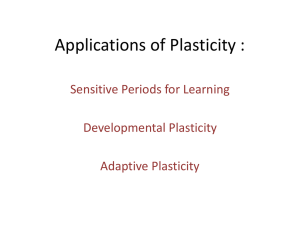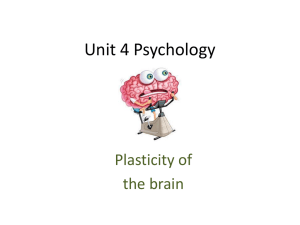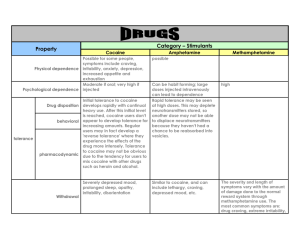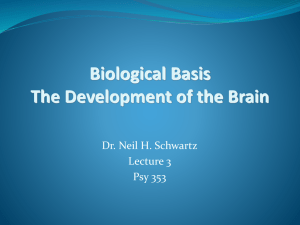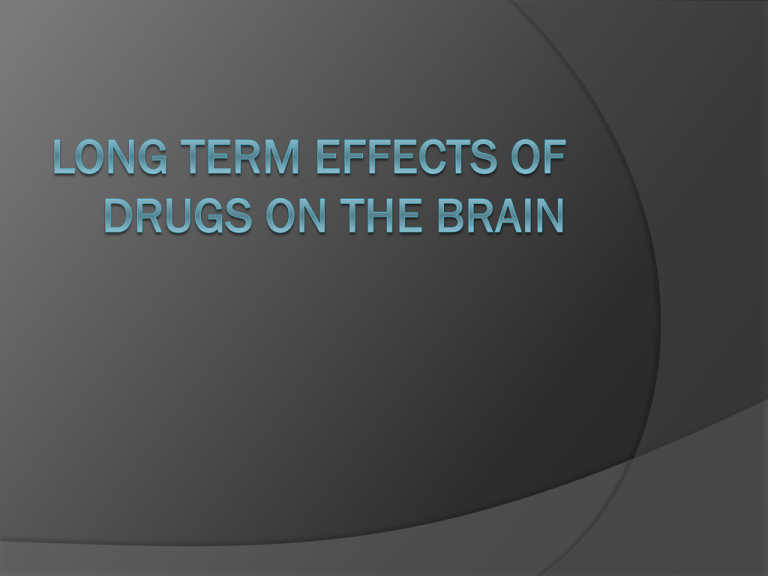
1) What are some of the ways that drugs
cause long-term changes in the brain?
A.
The continued use of drugs may cause the
brain to become resistant to the effects of
the drug (tolerance).
Drug Tolerance
2) How does the brain adapt to
the presence of drugs?
The brain adapts to the presence of drugs by
developing tolerance for the drug.
Tolerance may develop because:
the body may become more efficient at eliminating
the chemical from the body
the cells of the body and brain become less
responsive to the effect of the drug (decrease in
number of recepetors
Dopamine D2 Receptors are Decreased by Addiction
Cocaine
Meth
Alcohol
Heroin
Control
Addicted
1) What are some of the ways that drugs
cause long-term changes in the brain?
A.
The continued use of drugs may cause
the brain to become resistant to the effects
of the drug (tolerance).
B.
Some drugs, such as alcohol and MDMA,
can kill brain cells.
Why are large amounts of alcohol
bad for the brain?
In large doses, alcohol kills neurons in 2
specific brain areas:
the mammillary bodies (important for memory)
the cerebral cortex (controls mental functions)
Alcohol and the Brain
How does MDMA (ecstasy)
affect the brain?
It kills neurons that produce serotonin
Serotonin = a neurotransmitter involved
in regulating appetite, sleep, emotions.
Ecstasy and the Brain
1) What are some of the ways that drugs
cause long-term changes in the brain?
A.
The continued use of drugs may cause the
brain to become resistant to the effects of the
drug (tolerance).
B.
Some drugs, such as alcohol and MDMA, can
kill brain cells.
A.
Cocaine can cause the activity level of the
brain to decrease for a long period of time after
drug use is stopped.
How does cocaine affect the brain?
It reduces glucose metabolism up to
three months after the last use of the
drug
This indicates that the neurons of
cocaine addicts are less active 3 months
after they have stopped using the drug
Cocaine and the Brain
3) How may the abuse of drugs relate to
the plasticity of the brain?
Plasticity means that the brain can modify
connections (synapses) in response to
experiences.
Drugs that cause neuronal death can
decrease the plasticity of the brain because
neurons are not present to form new
connections and because existing
connections are lost.
Brain plasticity
4) What are some problems that scientists
have when they investigate the effects of
drugs on the brain?
Many drug abusers abuse more than one
drug.
Drugs taken in combination may have
different effects.
Also, many drug abusers have other medical
conditions
Summary: Drugs Change Brain
Chemistry!
Long term drug abuse and addiction can lead
to changes in the brain’s anatomy and
chemistry
Loss of neurons in hippocampus results in
memory loss
Decrease in glucose metabolism results in a
reduction of the brain’s processing abilities
These changes in the brain cause drug
addicts to loose the ability to control their
drug use




